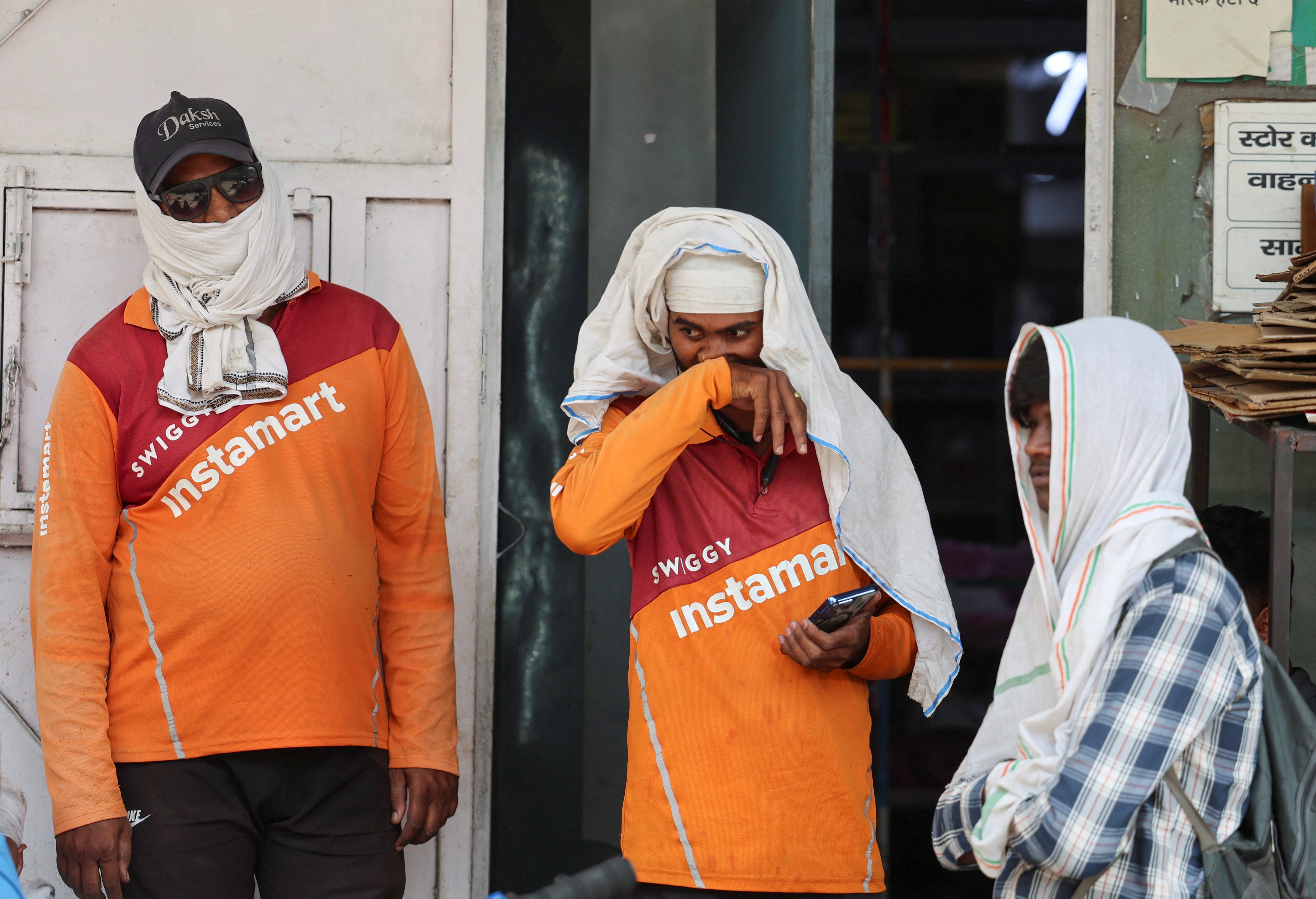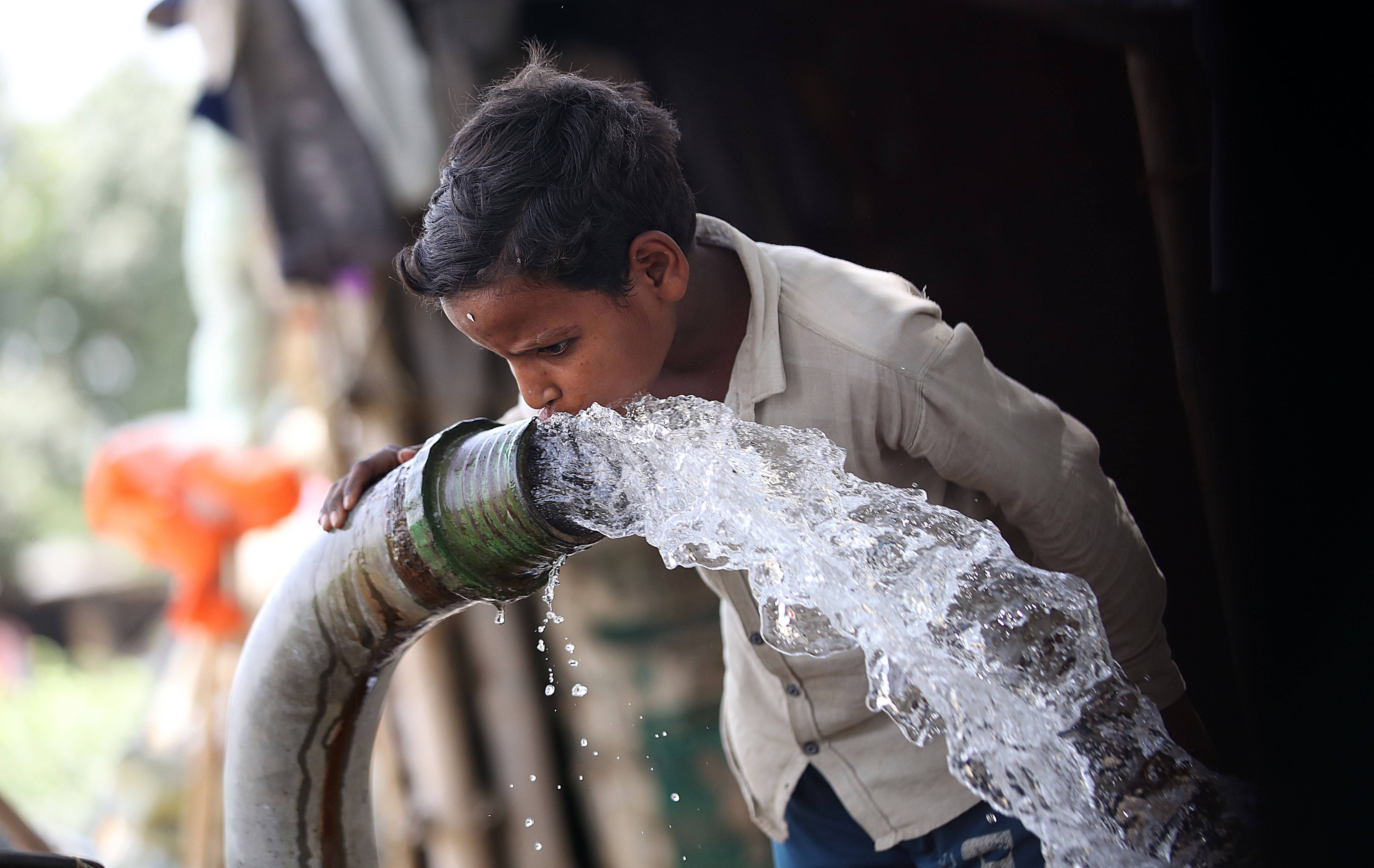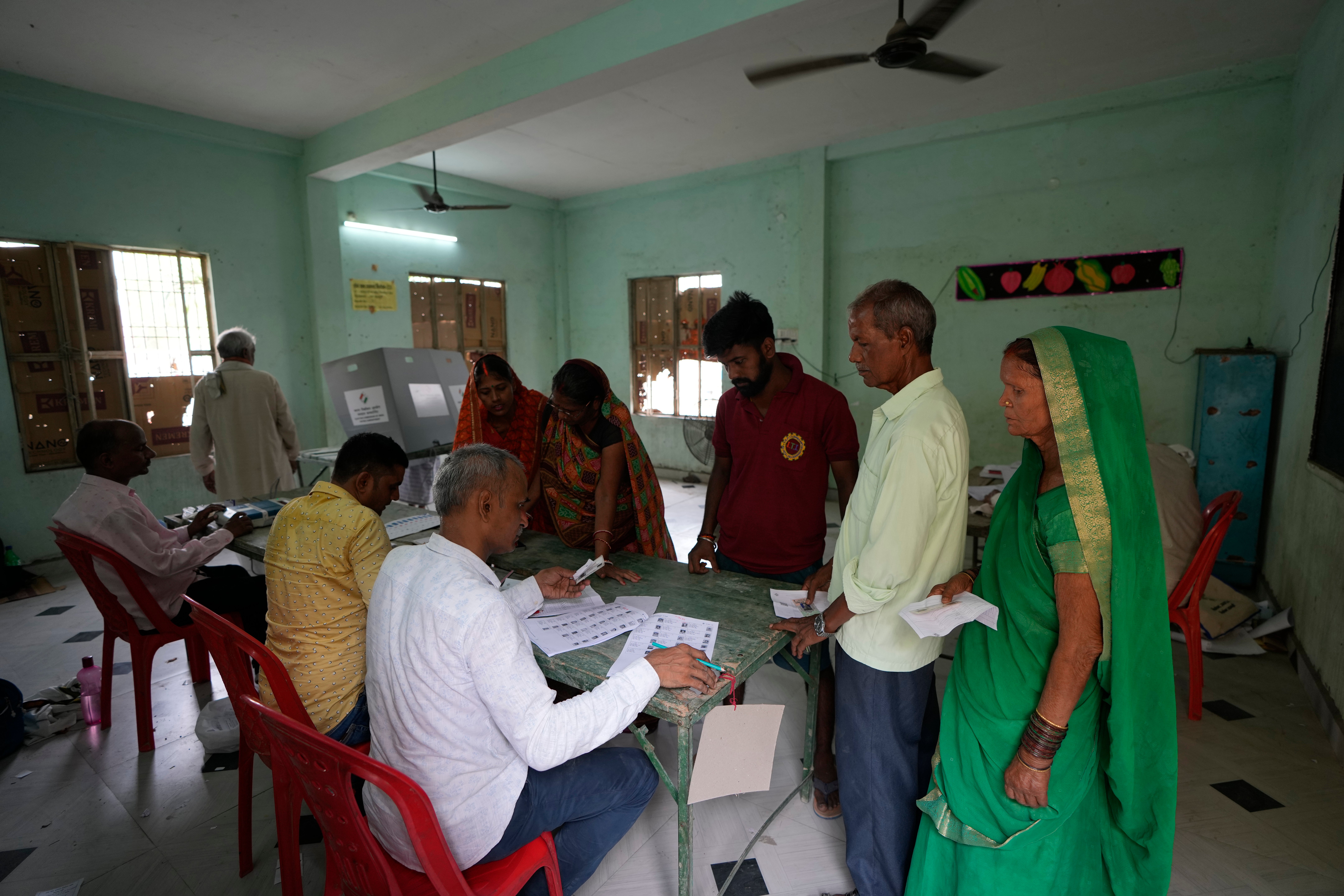Two dozen polling staff dead in 50C heatwave as India votes on final day of election
Hundreds of thousands line up outside polling station to cast their ballot as 57 seats, including prime minister Modi’s constituency goes to poll
Your support helps us to tell the story
From reproductive rights to climate change to Big Tech, The Independent is on the ground when the story is developing. Whether it's investigating the financials of Elon Musk's pro-Trump PAC or producing our latest documentary, 'The A Word', which shines a light on the American women fighting for reproductive rights, we know how important it is to parse out the facts from the messaging.
At such a critical moment in US history, we need reporters on the ground. Your donation allows us to keep sending journalists to speak to both sides of the story.
The Independent is trusted by Americans across the entire political spectrum. And unlike many other quality news outlets, we choose not to lock Americans out of our reporting and analysis with paywalls. We believe quality journalism should be available to everyone, paid for by those who can afford it.
Your support makes all the difference.Almost two dozen election officials have died of suspected heatstroke in India ahead of the last day of voting in the country’s general election.
Daytime temperatures have been reaching close to 50C this week in Delhi and other parts of the country, and the India Meteorological Department (IMD) says the heatwave over northern and central India is expected to continue for at least another two days.
Deaths linked to the heatwave were reported from several states on Friday, including a number that were involved in voting on Saturday in the seventh and final phase of the election. Results are due to be released on 4 June.
In India’s most populous state of Uttar Pradesh, at least 15 died of heat stroke, reported the <em>Press Trust of India</em>.
The dead include seven home guard soldiers, three sanitation workers, one clerk posted at the Chief Medical Officer’s office, one consolidation officer, and one worker in the home guard team, Dr Raj Bahadur Kamal, the principal of Mirzapur’s Maa Vindhyavasini Autonomous State Medical College, told the agency.
He said they were brought to the facility with high fever and high blood pressure.
Two polling officials died in UP’s Sonbhadra district. "A polling party was supposed to leave from the dispatch centre in Robertsganj today. Three polling officials including a police personnel and others fell ill due to heat. Two polling officials have died. The CMO mentioned heatstroke-like symptoms were seen in the polling officials who were brought here," reported ANI quoting Sonbhadra DM Chandra Vijay Singh.
Fourteen people died in Bihar on Thursday, officials said, including 10 people involved in organising the election. Election officials are typically required to stand on duty all day, often outdoors. Five fatalities were reported in the Bhojpur district, said the disaster management department. Three election officials died in Rohtas and one each in Kaimur and Aurangabad districts.

The department said it has initiated the process of granting compensation to the families of those who died.
Despite the blistering hot summer, hundreds of thousands lined up outside polling stations to cast their ballot for the last 57 parliamentary seats being contested on Saturday, including in prime minister Narendra Modi’s constituency in the Hindu holy city of Varanasi.
In Kolkata, the capital of West Bengal, voters lined up outside polling stations early on Saturday morning to avoid the scorching heat, with temperatures expected to reach 34C amid 75 per cent humidity.
The election is considered one of the most consequential in India‘s history. If Mr Modi wins, he’ll be only the second Indian leader to retain power for a third term after Jawaharlal Nehru, the country’s first prime minister.

Nearly 970 million voters — more than 10 per cent of the world’s population — were eligible to elect a new parliament for five years. More than 8,300 candidates are running for office.
Most polls show Mr Modi and his Bharatiya Janata Party leading over the broad opposition alliance that’s challenging them, led by the Congress party. Exit polls are due to be released after voting closes on Saturday, and not before 6pm.

Mr Modi’s campaign began on a platform of economic progress, with promises to improve the lives of the poor and turn India into a developed nation by 2047. But his and his party’s rhetoric have turned increasingly shrill in recent weeks as he gave back-to-back incendiary speeches that targeted the country’s Muslim minority, who make up 14 per cent of India‘s 1.4 billion people.
His party has faced stiff resistance from the opposition alliance and its main face, Rahul Gandhi of the Congress party. They have attacked Mr Modi over his Hindu nationalist politics and are hoping to benefit from growing economic discontent.
Pre-poll surveys showed that voters were increasingly worried about unemployment, the rise in food prices and an overall sentiment that only a small portion of Indians have benefitted despite brisk economic growth under Mr Modi, making the contest appear closer than initially anticipated.

Join our commenting forum
Join thought-provoking conversations, follow other Independent readers and see their replies
Comments